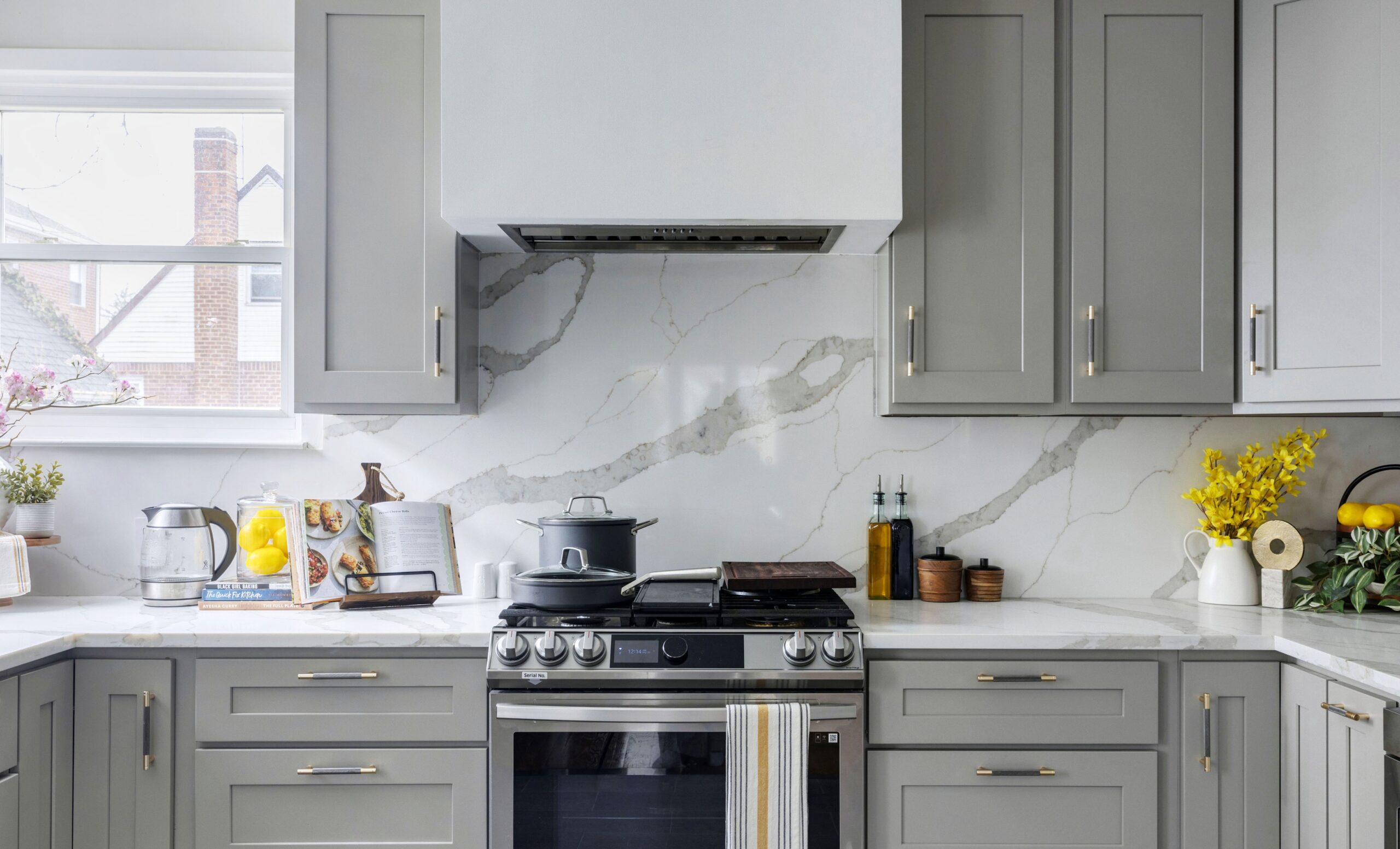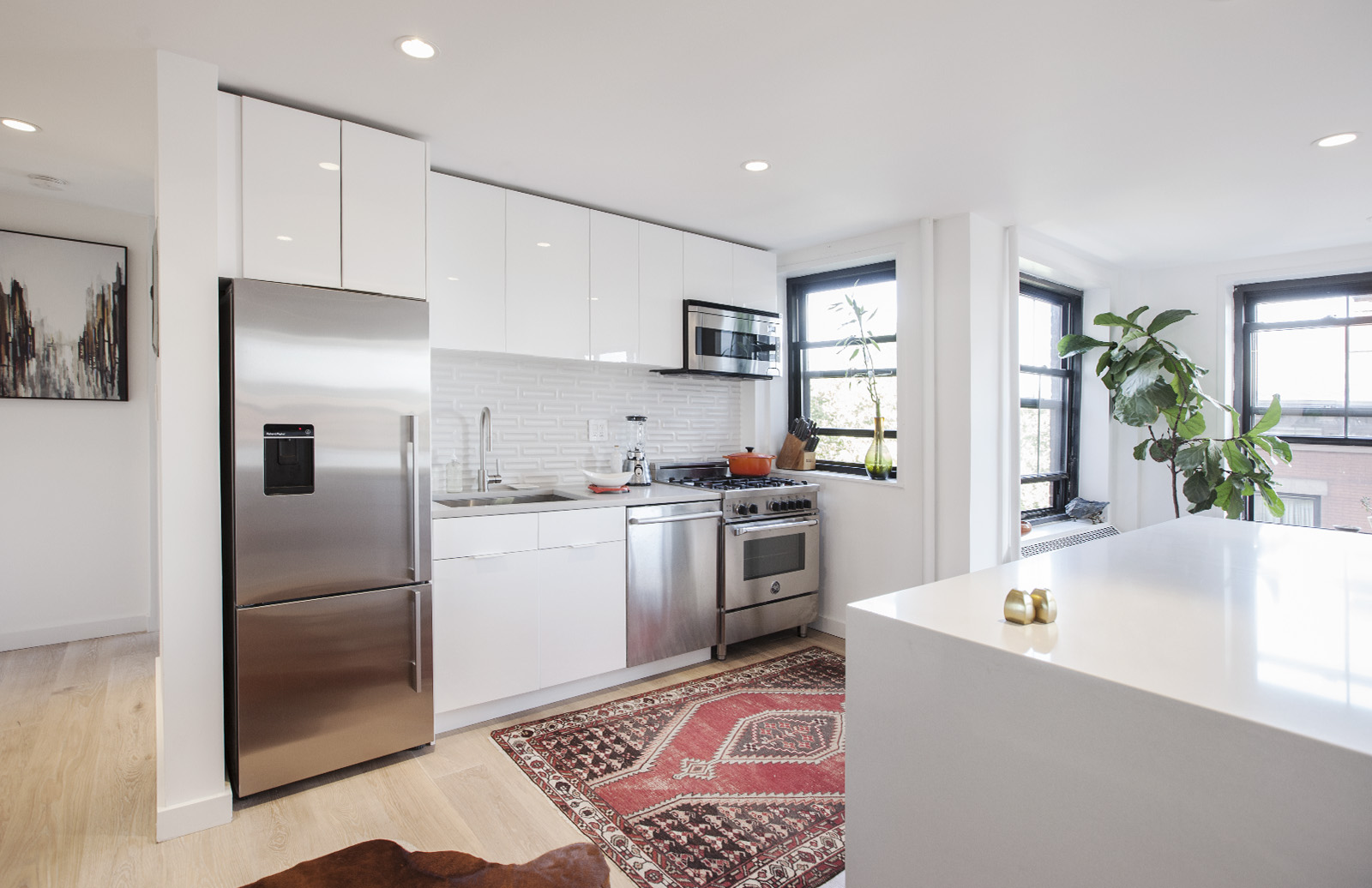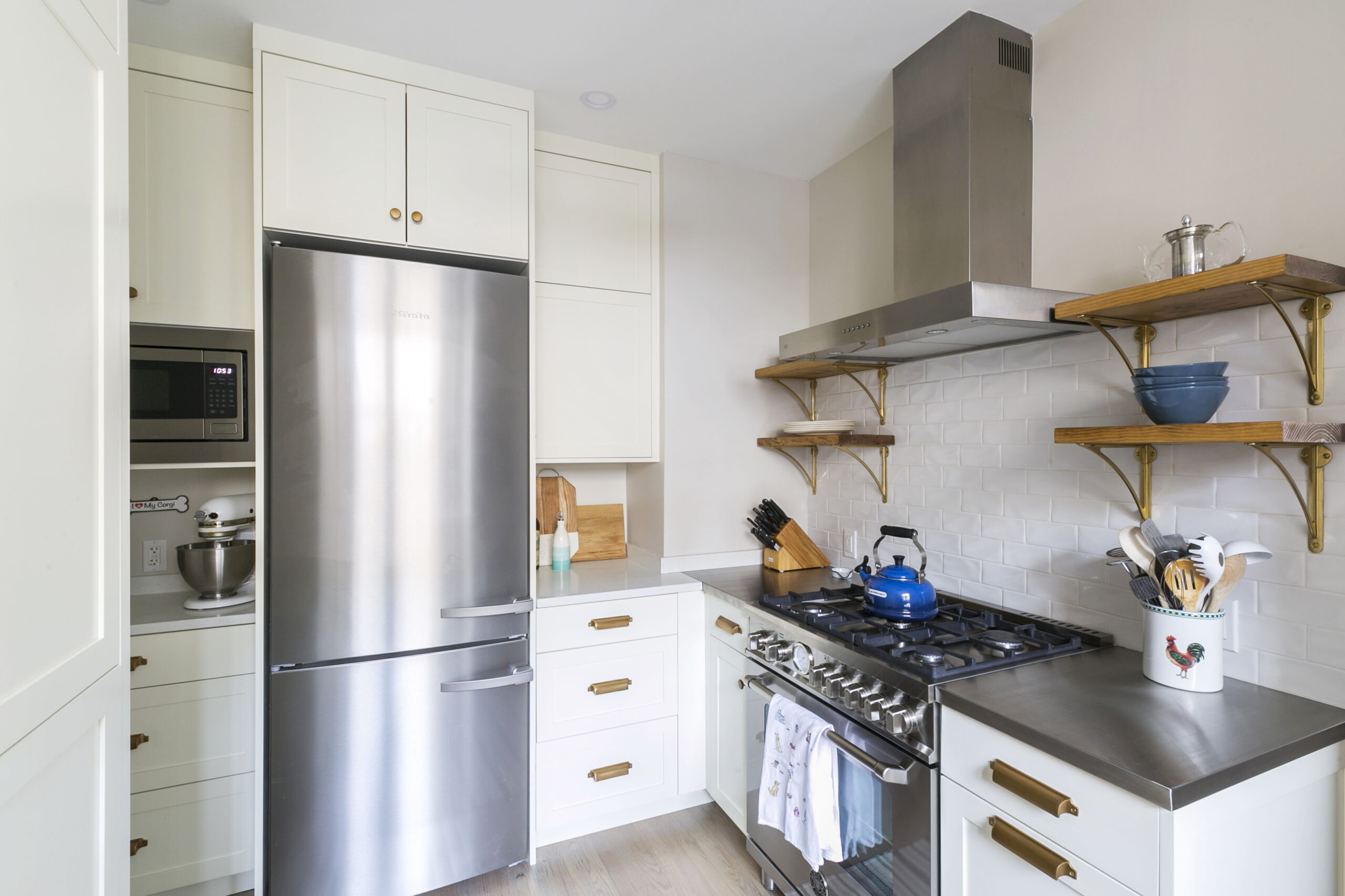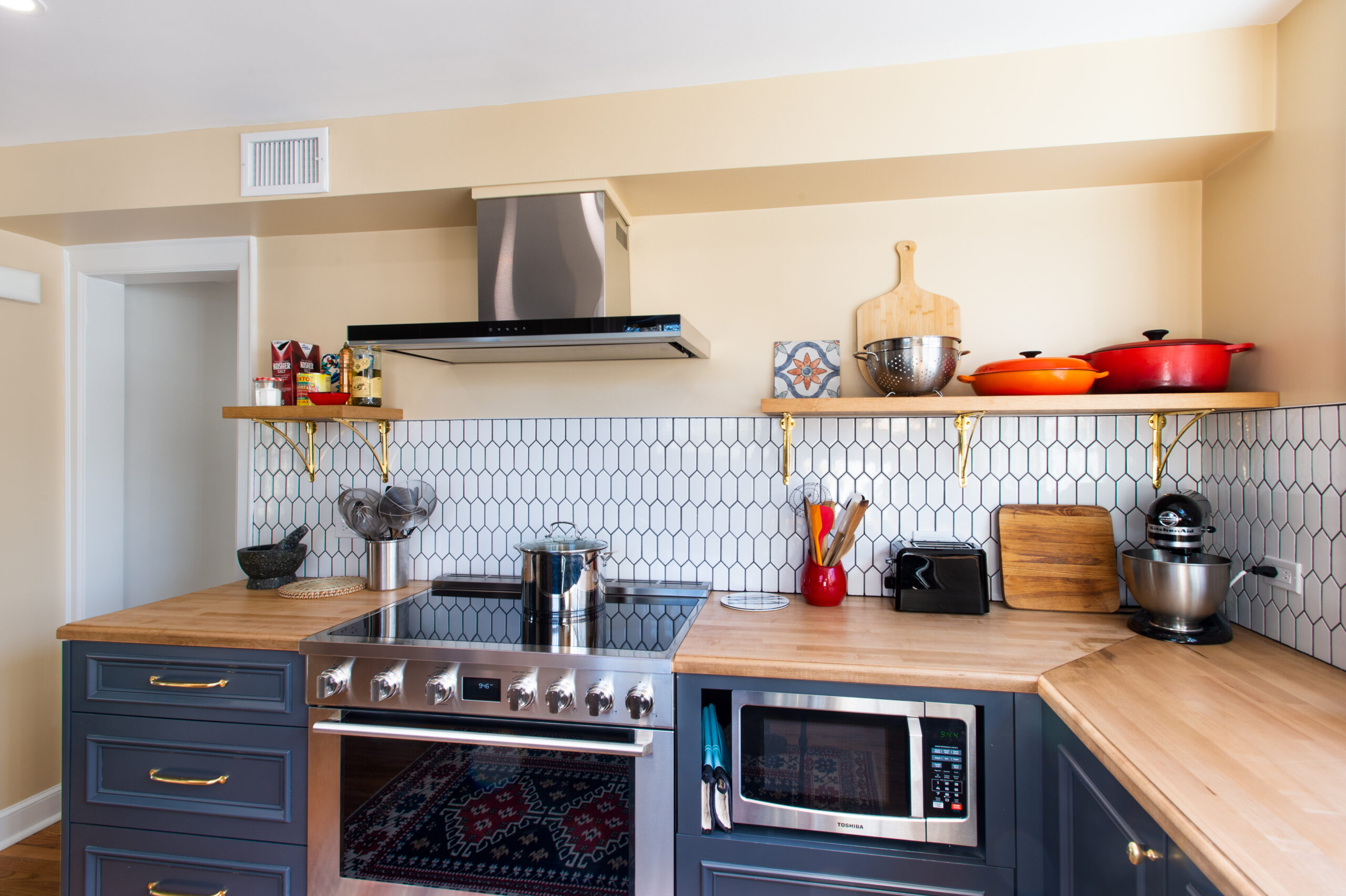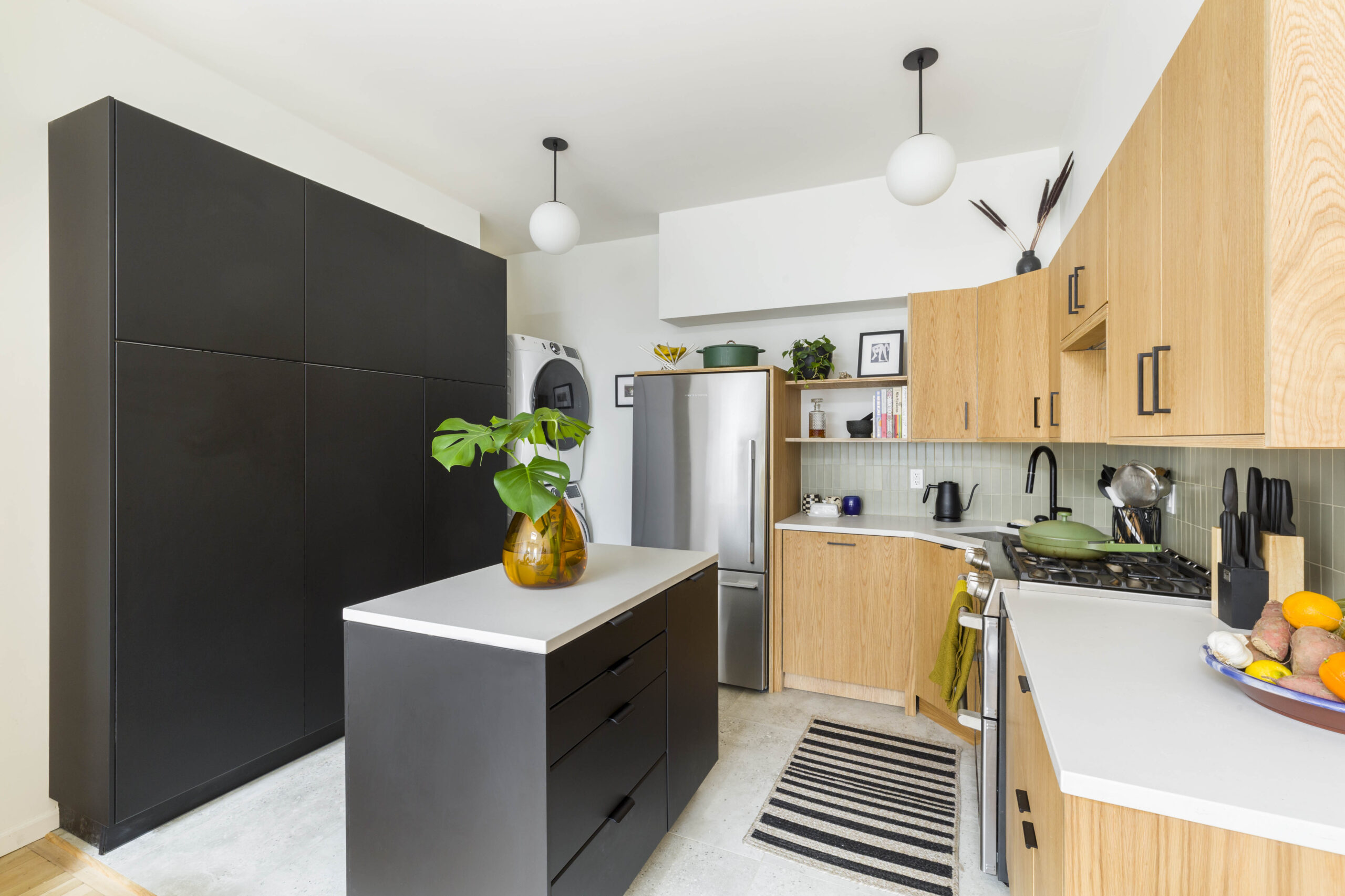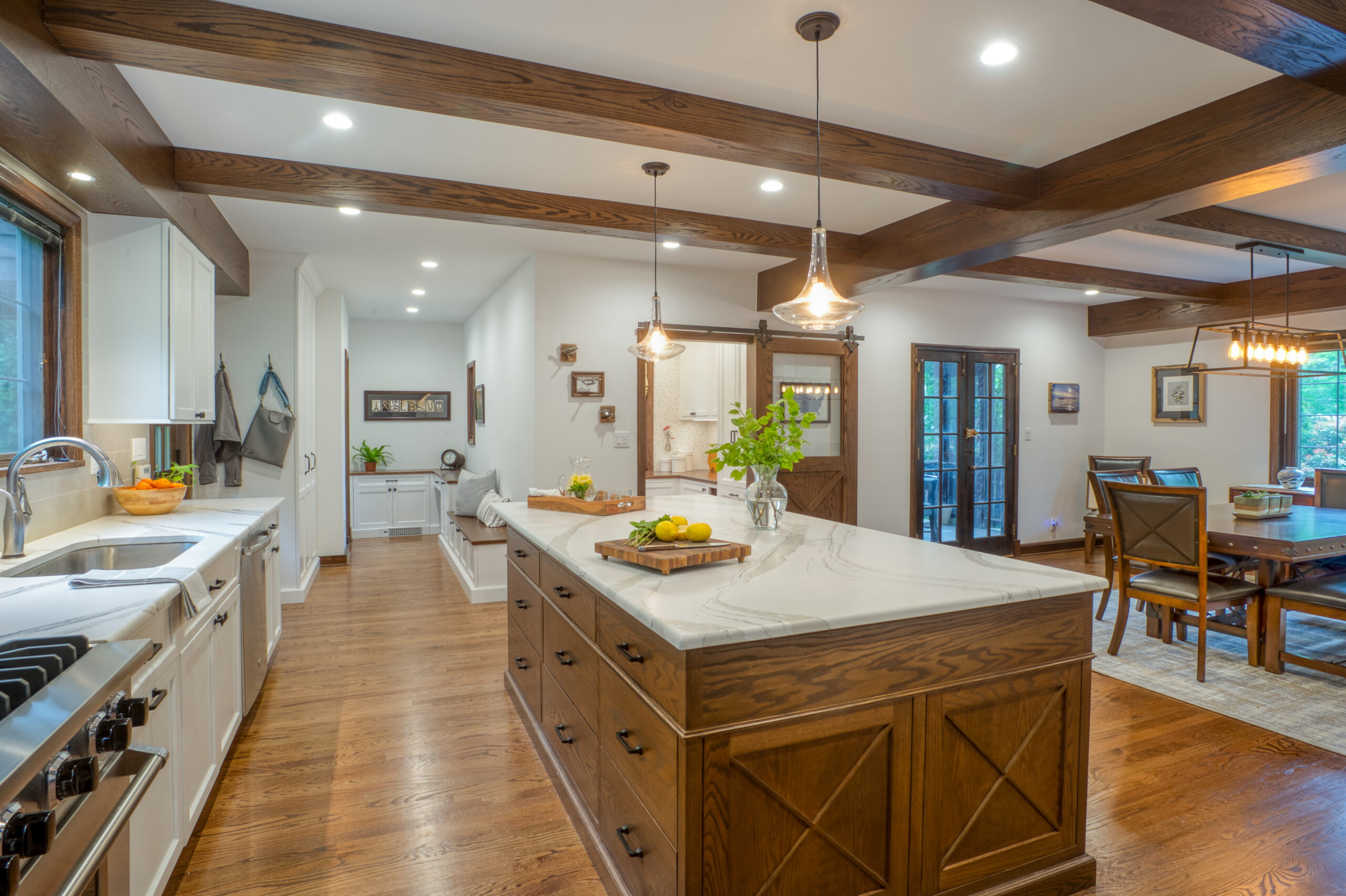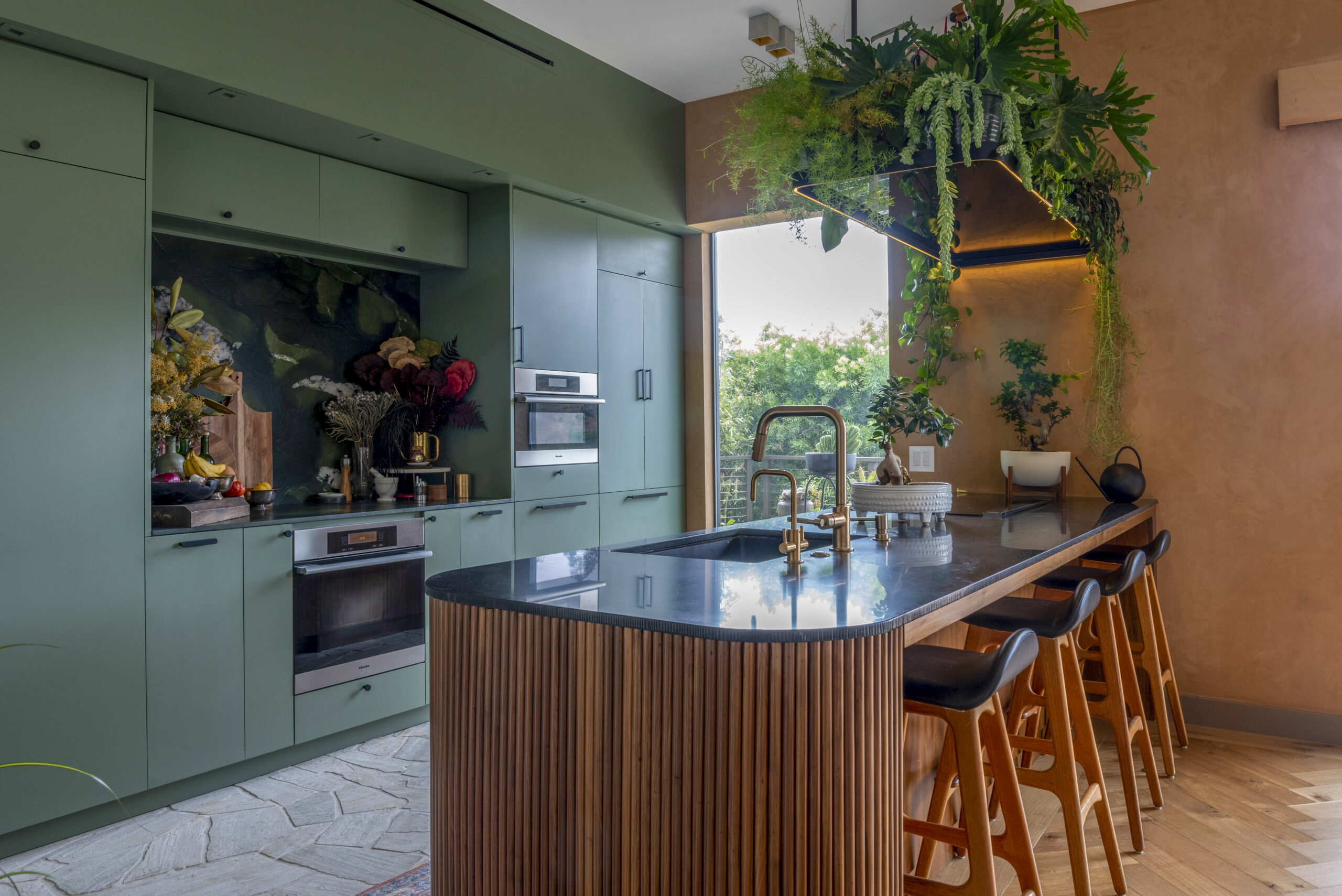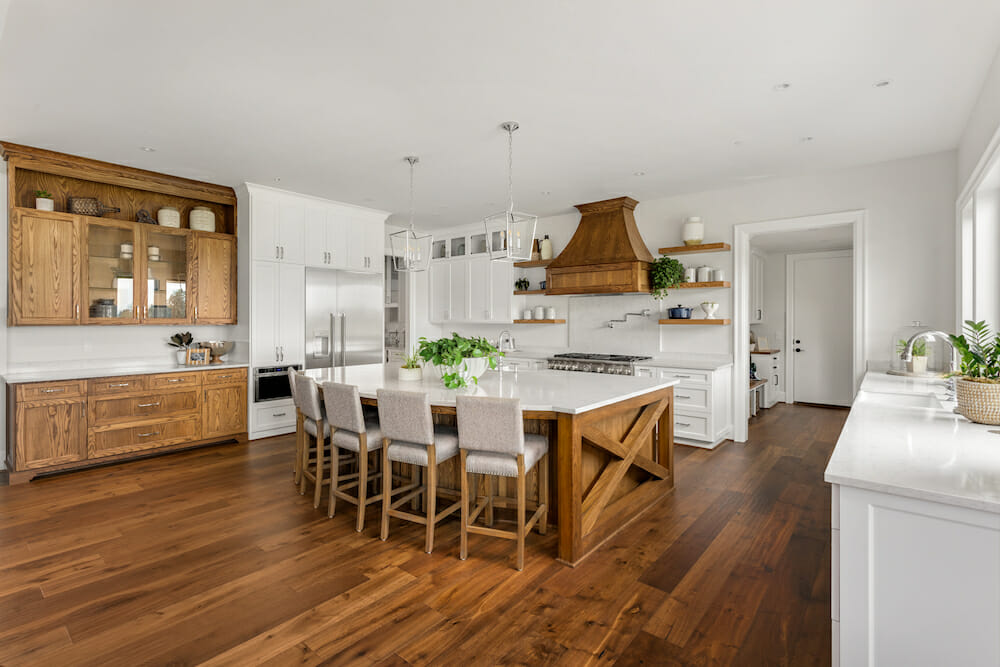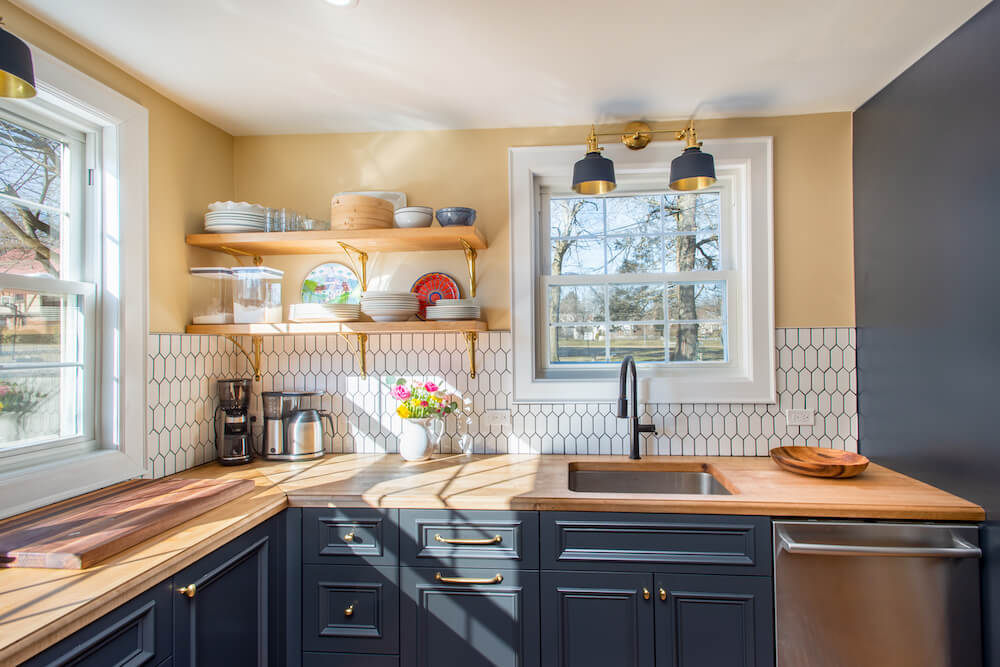Ultimate Guide to Choosing Your Kitchen Countertops
Kitchen countertops do a lot of work, they handle prep, spills, heat, and daily wear, and they shape how the room looks. From granite to quartz to wood, the right surface can balance performance with style.
After cabinets, countertops make the biggest visual statement in most kitchens. With options like natural stone, engineered quartz, solid surface, and wood, it pays to weigh durability, maintenance, and cost before you commit.
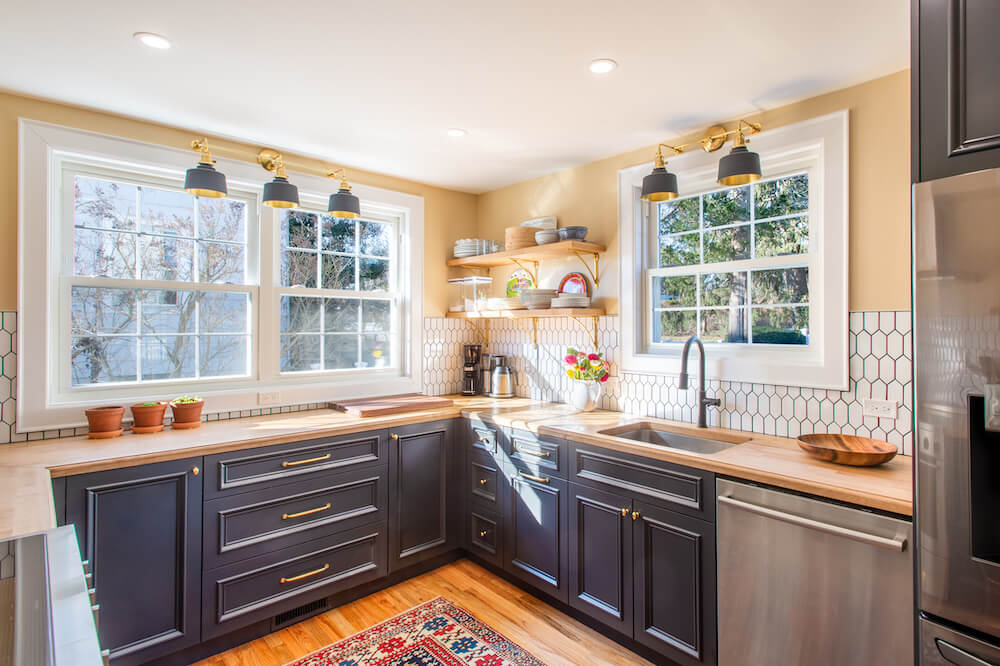
- Where will it go? Consider its visibility from adjoining living areas. A countertop isn’t just for cooking; it’s often a prominent feature in open-concept homes.
- How will you use it and how often? Assess its resilience. Can it withstand common spills, hot pans, and the daily impact of cooking tools and busy family life?
- What other features will it connect to? Ensure aesthetic and functional harmony with adjoining elements like integrated sinks, stovetops, or even breakfast bar areas.
- How often do you clean? Beyond the routine after-meal wipe with a sponge, are you prepared for any specific regular maintenance requirements, such as sealing or oiling?
No matter what you need from your countertops, there’s an option that fits. Many kitchens look better with a thoughtful mix of materials, so everything does not have to match.
Try one surface on the island and another on the perimeter, or use a small marble section for baking or a bar moment. Sweeten homeowners often use these countertop types, and the pros and cons below can help you choose with confidence.
Post your project on Sweeten for free and make your dream renovation a reality. Sweeten simplifies home renovation by connecting homeowners with top-rated general contractors, handling the vetting process and project management. To learn more about how we can help, check out our home renovation services.
Marble Kitchen Countertops
(Above) Carrara marble kitchen countertops in Lia and Chris’ kitchen remodel
Prized for timeless beauty, elegant veining, and one-of-a-kind variation, marble still draws homeowners who want natural stone in the kitchen. Its porous surface and higher price often make it a better fit for select zones, like a baking station, an island, or a bar area where day-to-day wear stays lighter.
Marble has a long history in grand homes, so if you like classic style and do not mind a patina that deepens over time, it can be the right choice for your kitchen.
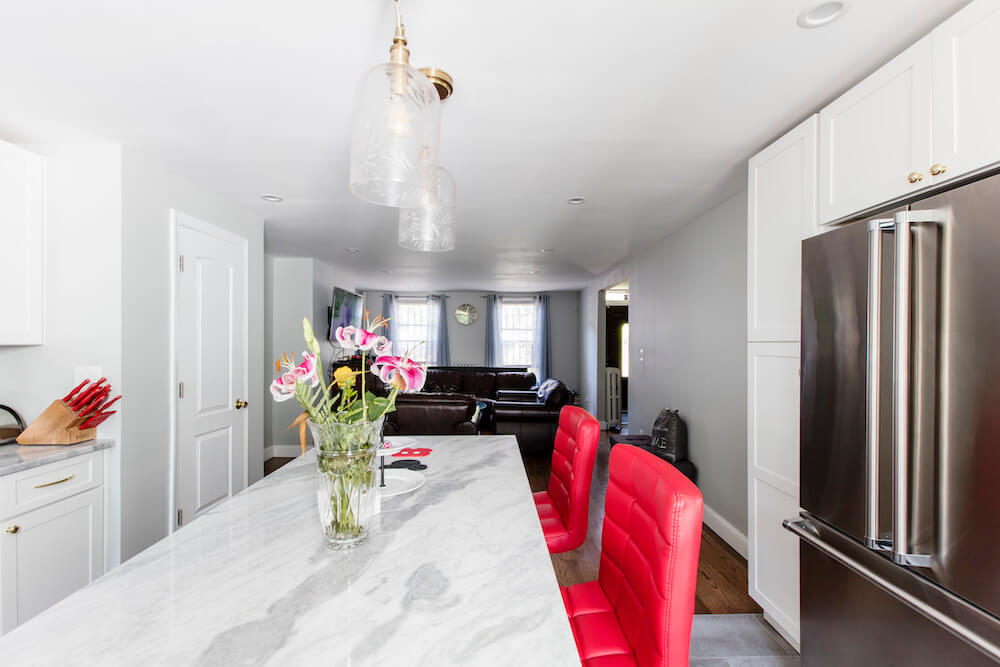
Cost of Marble Kitchen Countertops Starts at more than $120 per square foot (which does not include fabrication or installation)
Pros of marble kitchen countertops
- Naturally cool surface, ideal for pastry preparation and rolling out dough
- Exceptional aesthetic appeal; adds a sophisticated, luxurious look suitable for both traditional and contemporary designs
- Withstands high heat without scorching
- Pairs beautifully and harmoniously with a wide range of other surfaces, especially natural wood and various metals
Cons of marble kitchen countertops
- Generally among the most expensive natural stones available
- Color choices are relatively limited, typically ranging from whites, grays, to blacks, with varying vein patterns
- More susceptible to staining, scratching, etching (from acids), cracking, and chipping compared to denser stones
- Requires frequent sealing (often monthly) and can still discolor or etch if spills are not promptly wiped
Soapstone Countertops
(Above) Soapstone countertops in Janet and Jerry’s kitchen remodel
Soapstone stands out for strong heat and water resistance, plus a soft, muted color range with gentle veining that shifts over time. It can cost less than some premium marble, which appeals to homeowners who want natural stone without pushing the budget. Like any natural stone, it still needs the right care and maintenance to keep it looking its best.
Cost of Soapstone Countertops Starts at around $85-$120 per square foot
Pros of soapstone countertops
- Highly resistant to both heat and water, making it very durable for kitchen tasks
- Color tends to be consistent throughout the slab, offering a uniform appearance
- Its non-porous nature makes it resistant to stains and bacteria
- Suitable for integrated sinks, offering a seamless, blended look
- Often more affordable than many marble options and some granite varieties
Cons of soapstone countertops
- Softer than granite or quartz, making it more prone to scratches, though these can often be sanded out or blended with mineral oil
- May crack or chip if subjected to sharp impacts or heavy objects
- Requires regular oiling (typically mineral oil, not sealing) to enhance its natural darkening and develop an even patina; without it, it can appear lighter and may show fingerprints or water spots
- Develops a distinctive, darker patina over time, which you may or may not appreciate as part of its character
Engineered Stone Countertops
(Above) Engineered quartz countertops by Caesarstone in Bellamy and Zak’s kitchen remodel
Renovate to live, Sweeten to thrive! Sweeten brings homeowners an exceptional renovation experience by personally matching trusted general contractors
Among kitchen countertop options, engineered stone, mainly quartz, ranks as one of the most durable and dependable surfaces you can buy. It is usually made from about 90 percent ground quartz, mixed with pigments and polyester resin for color and strength.
That blend gets pressed under high pressure into dense, nonporous slabs that resist stains and everyday wear.
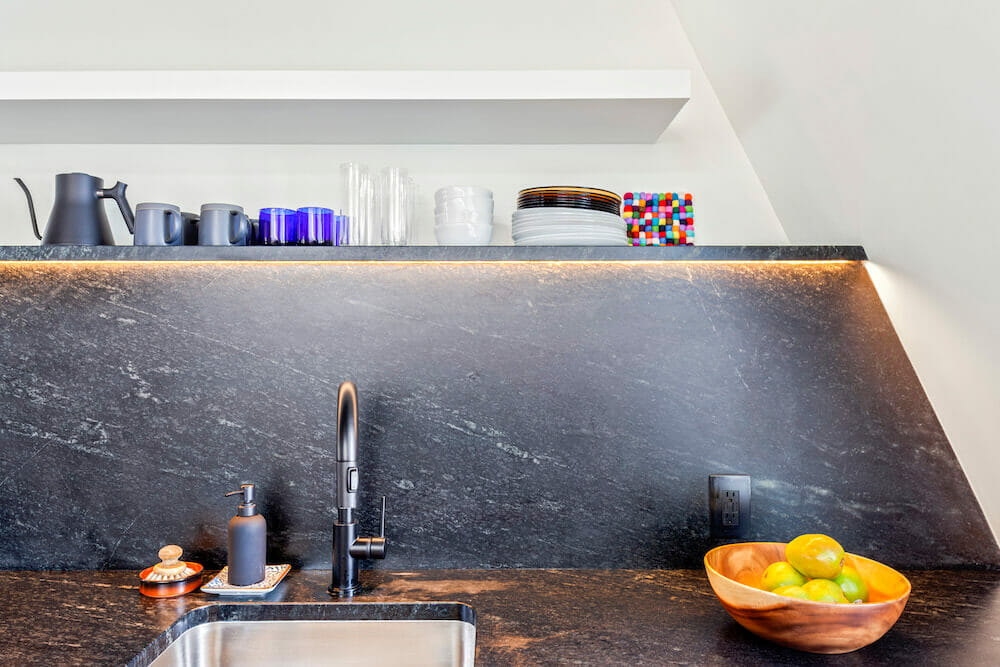
Top brands like Caesarstone and Silestone offer quartz in a wide range of styles, from granite-like patterns to crisp whites, deep blacks, and bold colors like red or blue. Many homeowners choose it since it resists stains and fading and handles daily wear well, even though it often costs about the same as, or more than, many natural stone counters.
Cost of Engineered Stone Countertops Starts at around $95-$150 per square foot
Pros of engineered stone countertops
- Among the most impervious of all surfaces; boasts exceptional resistance to heat, stains, scratches, bacteria, and fading
- Offers an immense selection of patterns and colors, including highly realistic faux stones, unique modern designs, and custom color possibilities
- Can be precisely manufactured into nearly any desired shape, allowing for seamless integration and complex designs
- Requires no sealing or special maintenance, making it very low-hassle
Cons of engineered stone countertops
- While highly realistic, some faux stone patterns may not perfectly replicate the organic depth and unique variations of real natural stone
- Can potentially crack on sudden, severe impact with a heavy object, though it’s quite durable
- Costs can be as much as, or occasionally more than, high-end natural stone options
- Solid-colored slabs, especially darker ones, may show seams more noticeably than patterned options
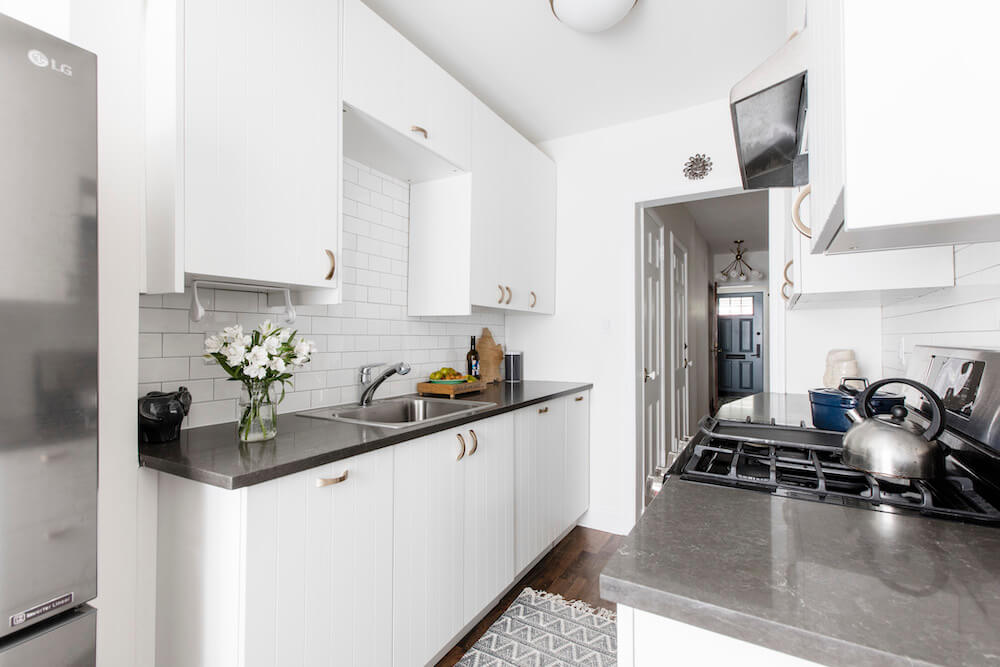
Granite Countertops
(Above) Granite countertops in Ann’s kitchen remodel Sweeten brings homeowners an exceptional renovation experience by personally matching trusted general contractors to your project, while offering expert guidance and support—at no cost to you. Renovate expertly with Sweeten
Granite became a go-to countertop a little over 20 years ago, and it still shows up in a lot of kitchens. Industry groups such as the National Kitchen and Bath Association often cite it as a top pick, usually trailing engineered stone in popularity. Homeowners stick with granite since it delivers natural character, strong durability, and day-to-day upkeep that feels manageable.
Every slab has its own pattern, so the surface looks one of a kind. Granite handles heat well and stands up to daily wear, but it is still porous, so it needs sealing about once a year to help prevent stains.
Cost of Granite Countertops Starts around $70-$120 per square foot
Pros of granite countertops
- Naturally resists high heat, making it suitable for hot pans
- Available in an enormous range of natural colors, patterns, and mineral grains
- Each slab possesses a unique appearance, offering individuality to your kitchen
- Maintains excellent resale value if properly cared for, including diligent annual sealing
Cons of granite countertops
- Can be expensive, although a wide range of popular colors and less exotic patterns are available at more accessible price points
- Shows wear from sharp knives (always use a cutting board!) and can be etched by acidic spills like vinegar, citrus juice, and oils if not wiped up promptly
- Requires regular, though simple, maintenance: annual sealing is crucial, which can be a DIY project with a sealant and a sponge
- Will crack if improperly installed or if subjected to extreme, concentrated impact from a very heavy object
Solid Surface Countertops
(Above) Architects Can Vu Bui, Lane Rick, and Matthew Storrie’s kitchen remodel
Twenty years ago, solid surfacing
Because it possesses a slight ‘give’ or flexibility, owing to its composition of acrylic or polyester resins (or a blend of both), objects accidentally dropped on solid surface counters are less likely to break. Furthermore, its unique properties allow it to be seamlessly molded into virtually any shape, including intricate inlays, custom edge profiles, integrated backsplashes, and even seamlessly incorporated sinks or furniture elements.
Cost of Solid Surface Countertops $75 to $110 per square foot, depending on the complexity of the pattern and color
Pros of solid surface countertops
- Highly resistant to heat, moisture, and fading, ensuring long-lasting color integrity
- Offers an enormous choice of colors and patterns, including impressive custom design possibilities
- Seams are fused together, resulting in virtually invisible joints for a sleek, continuous look
- Can be precisely molded into almost any shape, including integrated backsplashes or seamlessly installed sinks
- Does not require sealing and is easily cleaned with mild detergent and water
Cons of solid surface countertops
- Cannot withstand extremely high heat directly; hot pans can cause scorching or permanent shape distortion
- Vulnerable to scratches, cuts from sharp knives, and prolonged exposure to strong, concentrated stains like red wine or catsup; always requires a cutting board
- While designs have improved, some faux stone looks may still not perfectly mimic the deep realism of natural stone
- Typically not easily recyclable in many standard municipal recycling programs
At Sweeten, we’re experts at all things general contractors. Here’s how Sweeten works: We pre-screen them for our network, carefully select the best ones for your remodeling project, and work closely with hundreds of general contractors every day.
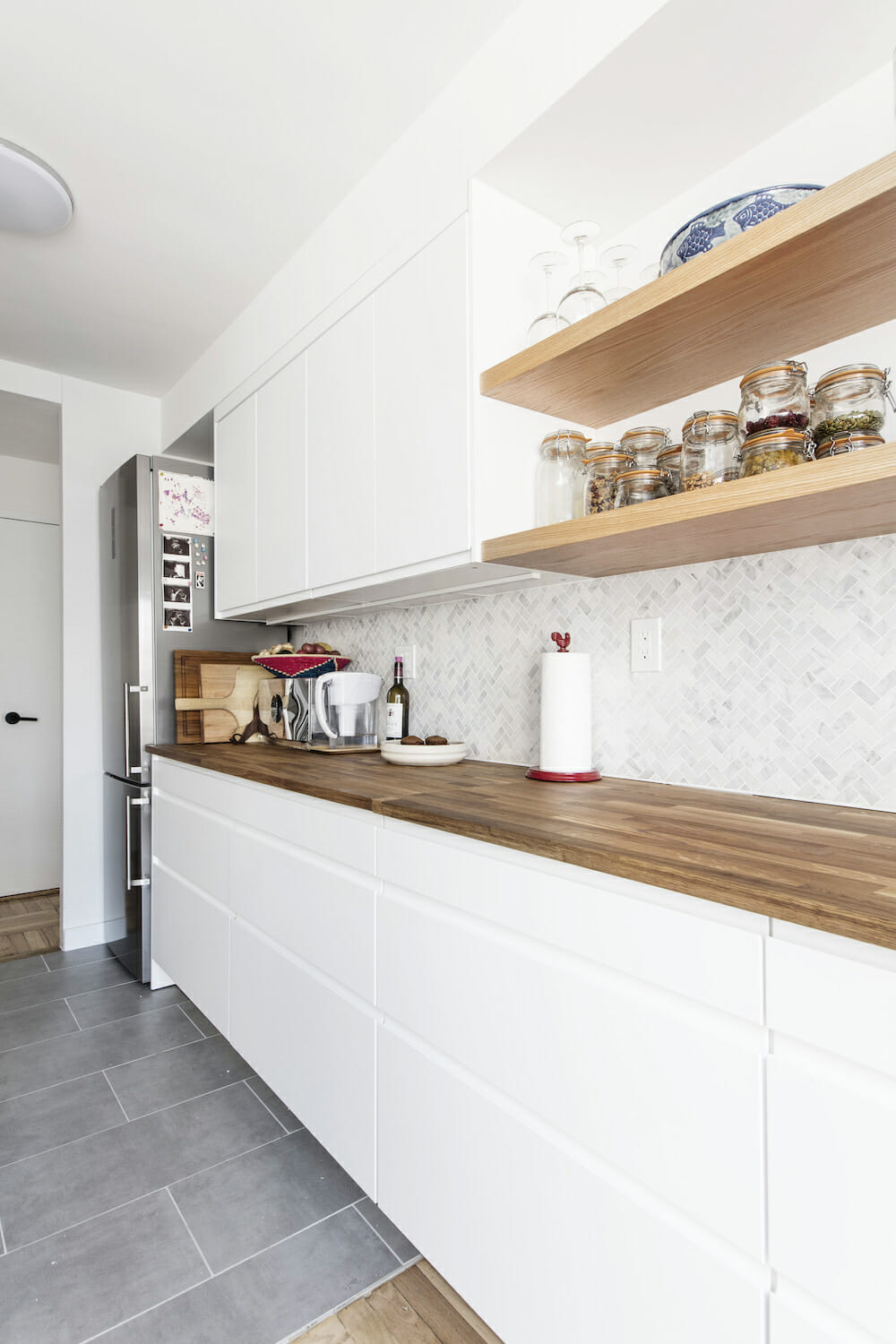
Wood Countertops
(Above) Wood countertops in Lavanya and Regis’ kitchen remodel
Probably America’s earliest and most enduring type of kitchen countertop, wood is perennially desired for its innate natural beauty, inviting warmth, and unique character. Wood countertops can tolerate moderate heat, but they will inevitably show burns, dings, and knife cuts. For many enthusiasts, this developing patina is not a flaw but a cherished part of the material’s appeal, telling the story of meals shared and memories made.
Most minor damage can be sanded out; however, it is crucial to reapply food-safe mineral oil after any repair to maintain its condition. Avoid installation in areas with prolonged exposure to moisture, particularly around sinks, as this will cause swelling, warping, or eventual damage. Daily cleaning is simple with a damp sponge and a mild detergent. Hardwoods such as maple and oak are most commonly used as kitchen countertops, often crafted in a butcher-block pattern, which significantly enhances their strength and durability. Another distinct advantage of wood countertops: they are often a more budget-friendly choice than many of the stone or engineered surfaces described above.
Cost of Wood Countertops Starts at around $40 per square foot; rarer wood species or custom designs can be significantly more expensive
Pros of wood countertops
- Relatively easy to clean and often repair minor surface damage
- Excellent for cutting and chopping surfaces (if properly treated as a butcher block); knives are less likely to dull on wood
- Less prone to chipping, and objects dropped on it are less likely to break
- Provides a rich, warm, and inviting aesthetic for a price that is often lower than many other premium kitchen surfaces
Cons of wood countertops
- Highly vulnerable to moisture, harsh chemicals, and extreme high heat, all of which can cause permanent damage
- Immediately shows signs of use, such as knife marks, dings, and burns, which contributes to its “patina” but may not suit all preferences
- Expands or contracts significantly with extreme swings in humidity or moisture, potentially leading to warping or cracking
- Requires ongoing maintenance, including regular application of food-safe sealant or mineral oil, to preserve the surface and prevent drying out or staining
Laminate Countertops
(Above) Laminate countertops in Dan and Mike’s kitchen remodel
While perhaps not as rugged as the most durable types of countertops available today, laminate countertops still boast a wealth of practical upsides that make them a popular choice. To start, laminate countertops are produced in an incredibly vast array of patterns, textures, and colors, and notably come with a very appealing, thrifty price tag. Made by bonding resin-covered decorative paper to a core of plywood or particleboard, laminate does involve a share of synthetic components.
To ensure optimal indoor air quality in your home, it is advisable to look for laminate countertops certified by reputable organizations like Greenguard, a certification that indicates they are manufactured from low-emitting materials using formaldehyde-free paper and low- or non-toxic glues. This incredibly fashion-friendly surface can convincingly mimic the appearance of natural stone, warm wood, intricate fabric, or virtually any graphic the manufacturer can conceive. With proper care, which specifically includes avoiding direct cutting on the surface and exposure to strong acids or harsh chemicals, a quality laminate countertop can last for several decades.
Cost of Laminate Countertops Starts at $15 to $35 per square foot
Pros of laminate countertops
- Requires minimal daily care and absolutely no sealing, making it incredibly low maintenance
- Available in a truly vast selection of patterns, textures, and colors, including many realistic faux finishes
- Easy to cut and install, making it suitable for tight spaces and DIY-friendly projects
- Exceptionally well-priced, particularly considering the extensive range of style options it offers
Cons of laminate countertops
-
- Prone to scratching and burning easily; significant damage is often impossible to repair seamlessly
- Seams are typically visible, particularly on solid colors or very long countertop runs, which can detract from a high-end look
- Due to their construction, they generally only allow for drop-in sinks, limiting under-mount sink options
- Any edge treatment more complex than the simplest options will notably increase the overall price
Stainless Steel Countertops
(Above) Stainless steel countertops in Beth and Bob’s kitchen remodel
Of all the types of kitchen countertops, stainless steel
While you must avoid caustic chemicals that can pit the surface, its inherent water- and stain-proof properties mean this is rarely an issue in typical food preparation. It comes in a number of finishes, including polished and brushed, with the latter being particularly effective at helping to hide minor scratches and fingerprints. Dings and dents will show up over time and are generally impossible to remove without specialized repair or even replacement of the section. However, for those seeking a truly professional-style kitchen countertop, these “battle scars” can often be seen as badges of pride, signifying a well-used and functional space.
Cost of Stainless Steel Countertops Starts at around $80-$150 per square foot
Pros of stainless steel countertops
- Super-resilient material; inherently water-, stain-, and fade-proof, and naturally resists bacterial growth
- Requires no sealing whatsoever; cleans effortlessly with simple detergent and water
- Can be seamlessly integrated with features like drainboards, sinks, and backsplashes for a completely continuous and hygienic surface
- Can be manufactured to exact specifications, allowing for potentially seamless, custom-fit installations
Cons of stainless steel countertops
- Not suitable for direct cutting; a cutting board must always be used to protect the surface from knives
- Shows the smallest scratches, smudges, and dents quite readily, which are very hard to remove once they occur
- Can be noisy when kitchen tools, pots, and pans come into direct contact with the surface
- Custom fabrication and installation for unique shapes or integrated features will significantly drive up the price, unless you opt for a ready-made sink and drainboard unit
Remodeling Kitchen Countertops with Sweeten
In 2025, homeowners are truly spoiled for choice with the many incredible types of countertops available, each offering a unique blend of aesthetics and performance. Need an ultra-durable, low-maintenance kitchen surface that stands up to anything? Explore the vast options in engineered quartz or classic granite countertops.
If your heart desires to achieve a luxurious, timeless look with natural character, beautiful marble is likely your best bet. Or, if you appreciate a classic, warm, or even sleek contemporary vibe, definitely check out the inviting qualities of wood or the professional appeal of stainless steel countertops. Interested in finally remodeling your kitchen and upgrading your countertops? Sweeten works exclusively with expert general contractors who possess extensive experience in fabricating and installing all types of kitchen countertops, ensuring a flawless finish.
A well-designed kitchen pantry is crucial in keeping your kitchen organized and neat. Kitchen countertops make up the bulk of your prep space—but it’s not just what’s on top that matters. Explore a variety
Planning to renovate? Get cost estimates from our GCs for free!
Get matched with our vetted general contractors and receive at least 3 quotations for free! You can also find endless home renovation inspiration, detailed guides, and practical cost breakdowns from our blogs.
